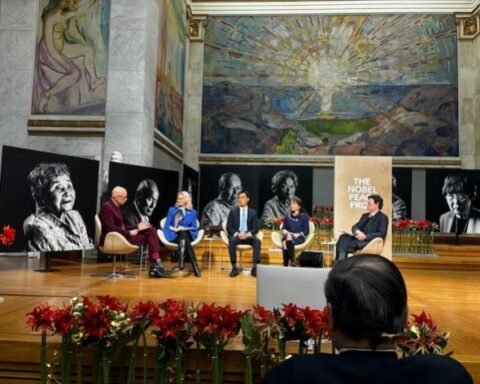Social media algorithms have played a transformative role in shaping online interactions since their inception. Emerging in 2009 with Facebook’s introduction of ranked, personalized news feeds, these algorithms have now been integrated into nearly all social platforms, influencing what content users see and engage with. As these algorithms mature, governments, technology companies, and legal scholars debate their impact on free speech, the democratization of ideas, and political discourse. This report analyzes the evolution of social media algorithms, their effects on free speech, and the ongoing global responses to regulate them.
Historical Context
Social media platforms were initially designed to facilitate open communication and free exchange of ideas. According to scholars Kai Riemer and Sandra Peter, early social media functioned as digital public spheres, where speech flowed freely without interference. However, the introduction of algorithms to curate content fundamentally altered how information was distributed. Instead of users seeing posts chronologically, platforms like Facebook began determining content visibility based on user interactions, giving rise to an algorithm-driven digital landscape.
Social Media Algorithms and Public Discourse
Social media algorithms are designed to maximize user engagement by prioritizing content that generates the most interaction. This has raised concerns that algorithms may distort the free exchange of ideas. Critics argue that controversial or sensational content is often amplified, leading to an overrepresentation of fringe political opinions and sensationalized discourse, as highlighted by Asha Rangappa, a Yale University lecturer.
Furthermore, the idea of a “marketplace of ideas,” traditionally applied to democratic discourse, is challenged by the structure of social media platforms. While proponents like Adam Candeub advocate for a marketplace where ideas can compete freely, others argue that the competitive nature of ideas on social media is skewed by algorithms. Rangappa asserts that, unlike traditional public spaces, social media platforms do not provide equal visibility for ideas; instead, content promotion is determined by algorithms that may prioritize engagement over merit.
Global Efforts to Regulate Algorithms
In response to concerns about the role of algorithms in spreading disinformation and harmful content, governments worldwide have proposed regulatory measures. For example:
– In Brazil, authorities temporarily banned X (formerly Twitter) to force the platform to block accounts that questioned the legitimacy of the country’s last election.
– The European Union (EU) introduced new rules threatening tech companies with fines of up to 6% of their turnover if they fail to prevent election interference on their platforms.
– In the UK, the newly enacted Online Safety Act mandates that social media platforms enhance content moderation.
– In the United States, proposed legislation threatens to ban TikTok if it is not sold by its Chinese parent company.
These regulatory efforts are often met with resistance from technology companies and advocates of free speech. Candeub, a free speech absolutist, argues that while social media can be divisive, government regulation may lead to dangerous levels of control over public discourse. However, critics of social media platforms contend that the lack of oversight allows algorithms to shape speech in ways that undermine democratic debate.
The Algorithmic Society and Free Speech
The term “algorithmic society” refers to an era in which algorithms, rather than governments, increasingly influence public discourse. Jack Balkin of Yale University posits that the First Amendment, designed to protect free speech in the United States, is inadequate in addressing the control algorithms have over speech. Algorithms do not restrict what can be said, but they shape who sees certain messages, which alters the dynamics of free speech by limiting the reach of some ideas while amplifying others.
According to Riemer and Peter, platforms play a much more active role in curating speech than the law currently recognizes. This shift in control highlights the need for a rethinking of free speech regulations, moving beyond content moderation to addressing how platforms’ business models incentivize algorithmic interference in public discourse.
Potential Solutions
Several solutions have been proposed to address the challenges posed by algorithms. One option is the creation of “middleware,” as suggested by political scientist Francis Fukuyama. Middleware services could act as intermediaries between users and platforms, allowing individuals to customize their content feeds according to personal preferences rather than being subject to platform algorithms. This system could restore user control over the content they see while maintaining the diversity of ideas online.
Another approach involves giving users more agency over algorithms, as seen with newer platforms like Bluesky, which offers users control over how content is displayed. This model aims to revive chronological timelines, providing a less curated experience that is more reflective of traditional public discourse.
As social media algorithms mature, their impact on free speech and democratic debate continues to be a subject of intense debate. While some argue that algorithms distort the marketplace of ideas by amplifying sensational content, others believe that government regulation poses its own risks to free expression. The challenge lies in finding a balance between protecting free speech and curbing the negative impacts of algorithm-driven content promotion. Whether through regulatory efforts, the development of middleware, or user-centric platforms, the future of online discourse may ultimately rest in how algorithms are governed and controlled.
Recommendations
Enhance transparency**: Platforms should make their algorithms publicly available for scrutiny to ensure accountability.
Introduce user controls**: Allow users more control over how algorithms shape their content feeds, promoting a more equitable distribution of ideas.
Promote algorithmic diversity**: Encourage the development of middleware solutions that offer users alternatives to platform-controlled content curation.
Monitor the role of algorithms in content promotion: Governments should focus not only on content moderation but also on how platforms’ business models influence the visibility of speech.
By addressing these concerns, policymakers, technology companies, and users can collectively navigate the complexities of free speech in the algorithmic age.







